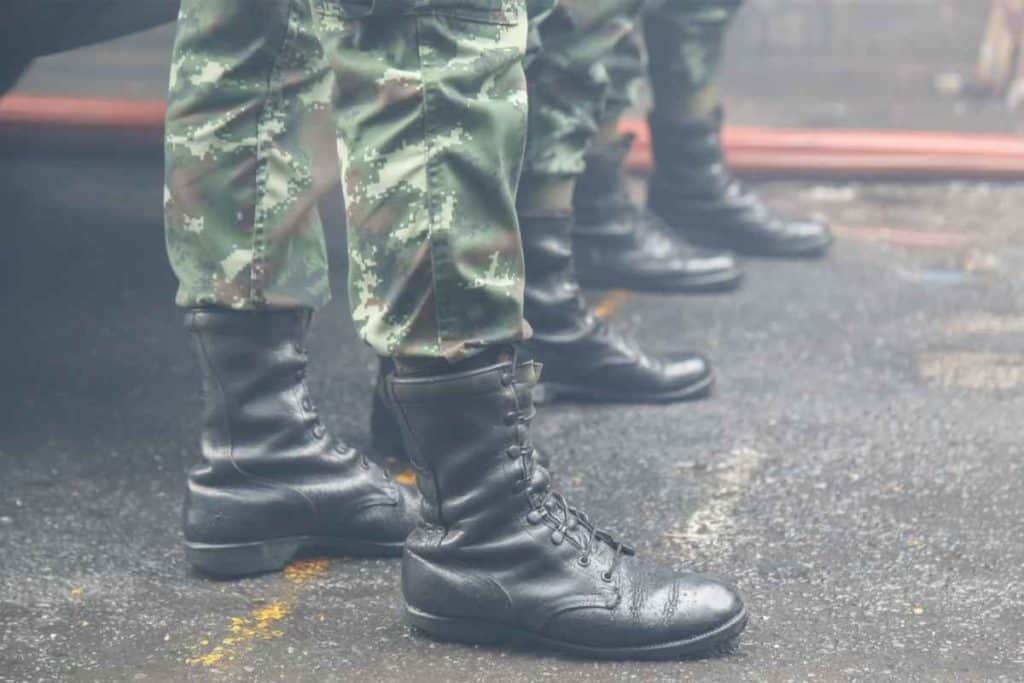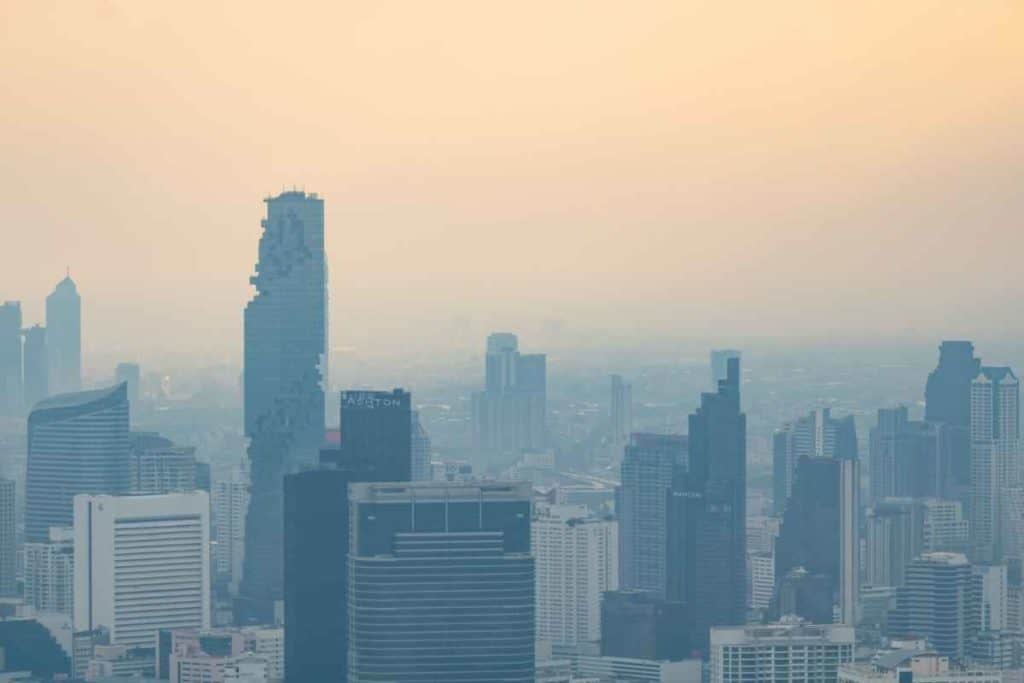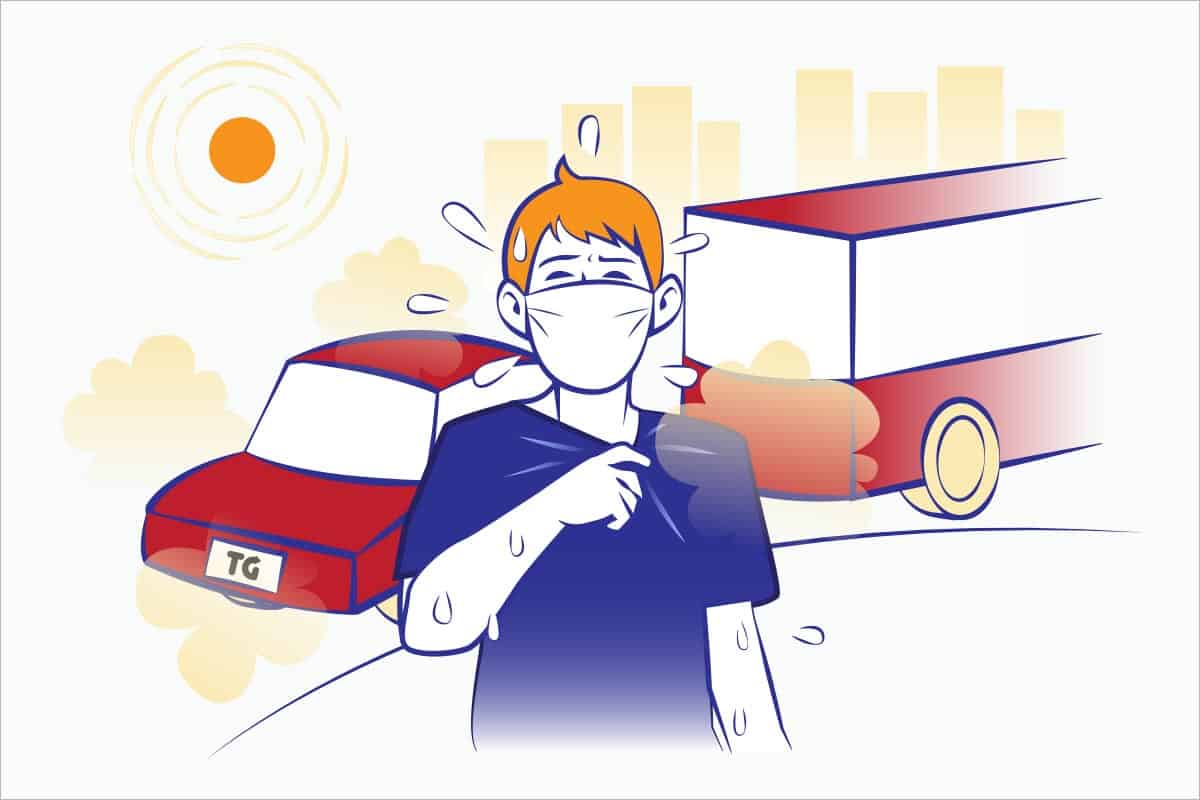According to data, Thailand issued almost 80,000 visas for foreign retirees in 2018 – a 30% increase compared to 2014, and there are large foreign retirees communities in places like Phuket and Chiang Mai. (1)
Despite Thailand being a well-known destination in Asia among many foreign retirees and expats, many foreigners who once lived in Thailand had left the country due to the problems they faced in the ‘Land of Smiles.’ To understand why expats and retirees are leaving, here are some of the issues retiring in Thailand may cause.
Requirements for Retirement Visa in Thailand
Before diving into the problems and challenges, let’s look at the requirements to get a retirement visa in Thailand. First of all, the applicant must be 50 years or older and must meet any of the following financial conditions (2):
1. Monthly income of 65,000 THB
2. 800,000 THB security deposit in a Thai bank account for two months before applying for the visa
3. Combination of annual income and security deposit with a total of 800,000 THB.
These requirements are for “non-immigrant O visa” or “non-immigrant OA visa” types, allowing the holder to stay in the country for an uninterrupted one-year period.
The holders can renew their visas annually, and the renewal process can be done inside Thailand, with requirements remaining the same unless new regulations are added (2).
Another type of visa for retirees and expats is the Thai Elite Visa, which is way more expensive but allows a more extended period of stay for the visa holders.
6 Problems To Consider Before Retiring in Thailand
So, should you avoid Thailand for retirement? Here are some reasons why expats and retirees are opting to leave the Land of Smiles.
1. Political Turmoil

Coups are not an unfamiliar event in Thailand’s politics. Within just over a century, 13 successful coups and nine unsuccessful ones happened in Thailand (3). The ruling government was also formed through a coup staged by the current Prime Minister, General Prayut Chan-o-cha, in 2014.
It has been pointed out by researchers and politicians that one of the possible reasons why Thailand is very prone to military coups is that Thailand is not a fully democratic country and is still ruled by a constitutional monarchy. In recent years, a lot of criticisms have been made towards the political structure of Thailand, which led to rallies and protests happening very often.
In 2021, protests and resentment towards the ruling government escalated due to the poor management of the COVID-19 pandemic, slow (and delayed) vaccine rollouts, country-wide lockdowns, and restrictive measures, which caused disruptions to many businesses and stagnating incomes (4).
Many large-scale protests were carried out in 2021 as the protestors demanded that General Prayut Chan-o-cha and his government step down. In retaliation to the protests, an emergency decree, and laws that refrain media and netizens from spreading ‘fake news’ that could defame the Royal family and the government, were put into action – causing many prominent protest leaders and public figures to be detained. (5) Violent clashes between the police forces and the protestors often happened.
These political instabilities paint Thailand in a bad light, especially for those who value freedom of speech and democracy. These political turmoils also negatively impact businesses due to changes in laws and regulations.
2. Strict Visa Requirements
As mentioned above, visa requirements for foreign retirees are not cheap. Starting from February 2019, foreign retirees must have either a monthly income of 65,000 THB (the equivalent of 1853$) or a security deposit of 800,000 THB (the equivalent of 22682$) in a Thai bank account for a period of 2 months prior or a combination of monthly income and security deposit totaling to 800,000 THB (1).
The applicants are also required to have health insurance, which creates a massive problem for the retirees as the premium could cost as much as 100,000 THB per month (the equivalent of 2835$) for someone aged 75 years old (1).
As the visa requirements become more expensive, many foreign retirees expressed their concerns about feeling trapped in the country as many have been “out of their home countries’ systems” (1) as they made a life here in Thailand for many years. The rise in living costs also makes matters worse for the foreign retirees as many of them rely on savings and pensions.
As the Thai government hoped to attract wealthy individuals with Elite Visa schemes which allow longer stay periods at a higher price, many foreign retirees in Thailand feel they are being squeezed out. Visa restrictions even caused some to leave the country once they called home.
3. Air Pollution Problems

Caused by vehicle emissions, waste burning, manufacturing from factories, construction works, and power generation from coal and mining industries, Thailand has been struggling with high PM 2.5 level air pollution problems since years ago.
Thai local people frequently had to wear masks even before the global pandemic started due to the bad air quality- especially in large urbanized cities like Bangkok and Chiang Mai. According to World Health Organization’s guidelines, the air quality in Thailand is considered to be moderately unsafe – with the most recent data indicating the country’s annual concentration mean of PM 2.5 is 26 µg/m3, which exceeds the recommended maximum level of 10 µg/m3 (6).
In 2019, the air pollution level in Bangkok had reached a dangerously high level, causing the face masks to go out of stock and schools in Bangkok and nearby provinces to shut down due to health concerns (7).
The government of Thailand even had to deploy drones to spray water in an attempt to reduce the toxic particles blanketing the city’s atmosphere. PM 2.5 level in Thailand is the highest during the dry season, which is from January to April. During these months, smogs and haze were frequently sighted around the city, causing health problems to the people living and creating serious health concerns for the elderly retirees.
4. COVID-19 Impact
Although Thailand was able to handle the global pandemic quite well in 2020, the same could not be said for the 2021 cases. In the second half of 2021, cases surged in Thailand as the Delta variant spread across the country.
According to WHO, Thailand has recorded over 2.3 million confirmed COVID cases, with death tolls of over 21,800 patients (8). This caused hospitals to be overwhelmed and the otherwise strong Thailand healthcare system to become stretched beyond its capacity (8).
Nationwide lockdowns and restrictions were put into place, forcing many businesses to be shut down on short notice. Both locals and the foreigners residing in Thailand have demanded faster vaccine rollouts ever since the beginning of 2021.
Still, many foreigners were able to register for vaccination only around June or July. Slow vaccination plans were not the only thing that angered the public. Rules and regulations regarding the lockdown measures were constantly changed and usually announced within short notice, causing confusion and frustrations, especially for foreigners.
On top of everything, the government also threatened to sue people who criticized their pandemic response plans with ‘digital law acts’ (9). All these chaotic COVID situations in Thailand have caused many foreign retirees to reconsider their decisions.
5. Safety Concerns
Thailand, in general, is a safe country- be it for traveling or living. However, some safety concerns can still make foreign retirees think twice before moving to Thailand.
First of all, Thailand is notorious for traffic accidents. The country was once ranked second by WHO as the country with the highest rate of traffic-incident-related fatalities in the world (10)- showing how serious the danger is.
It is not uncommon to see motorcyclists over-speeding and carelessly driving, especially in the small alleyways known as “Soi”s. One must be very careful while crossing the roads in Thailand or walking in the small alleys, as traffic accidents happen very frequently.
Scams are also commonly found across Thailand, although most are targeted toward unassuming tourists. One of the most common types of fraud faced by foreigners is the Taxi/Tuk-Tuk scams.
In those cases, the taxi driver or the Tuk-Tuk driver will take the longer route to the destination so that they can charge extra from the passengers. Sometimes, they would also try to charge extra for the luggage or not giving back the exact change after getting the money. Another common petty crime foreigners might encounter is bag snatching.
Motorcycle snatchers are known to be dangerous as they would drive very close behind the unsuspecting victims and try to snatch the bags or jewelry pieces from the victim and then drive past very fast from the scene right away.
Frequently, these snatchers caused severe injuries to the victims, as the victims could fall due to the force of being snatched from a speeding motorcycle. And it is definitely upsetting to lose one’s belongings, and not to mention that if the passport or any type of verification cards are in the bag that got snatched, it would be a bigger problem for the foreign residents.
The last type of safety concern that foreign retirees usually have is health concerns. Unlike in some countries, it is not recommended to drink tap water in Thailand. The reason being is that as the water in Bangkok comes through old and broken pipes before entering the taps, the water can get contaminated by the time it reaches you (11).
And although Thai food is delicious, foreigners should be careful when eating unfamiliar dishes as it can cause health problems like diarrhea, food poisoning, or even death in rare cases.
6. Possible Pension Reduction
Although not commonly happening, there have been reports of the retirees’ pensions being affected when living in Thailand- especially for those from the United Kingdom. This is because UK’s pension policy states that if a UK resident is permanently living abroad in a particular country, including Thailand, their annual pension increase will stop (12).
Some countries do have a special agreement with the UK, and a yearly accumulation may still be possible to happen even when the resident is living abroad, but that is not the case for those living in Thailand. Therefore, it is recommended to ask the local pension or retirement department before moving to Thailand, as these pension policies can be continuously updated in most western countries (12).
Should Foreigners Still Retire In Thailand?
To answer this concern, one should also consider the positive aspects of living in Thailand. Even though the Delta variant hit the country’s healthcare system quite hard, Thailand is known to provide world-class healthcare services at a cost cheaper than that of most western countries.
The living costs in Thailand are also relatively affordable compared to other highly urbanized cities like Singapore and Hongkong. These positive attributes of living in Thailand should be considered alongside the negative aspects mentioned above so that one would be able to decide if the positive sides are more than enough to weigh out the negative ones or vice versa.
Conclusion
Being a foreign resident in Thailand sure has its frustrating aspects and possible safety concerns. From significant issues like strict visa requirements to daily inconvenience such as the smogs in the air due to the high PM 2.5 level of Thailand, this article mentioned some of the cons of living in Thailand as a foreign retiree.
However, Thailand also has beautiful islands and friendly people to offer. The Thai government also recently announced the plan for a new long-term visa scheme for foreigners, which is said to cost half of what a Thai elite visa would cost for the same period of time allowed to stay in the country.
With the country recently opened again for the foreign visitors, now seems to be a perfect time for the foreign retirees to weigh the pros and cons of living in Thailand!
Like always, if you want to discover more about Thailand, stay guided with ThaiGuider. You might learn something you never knew about this unique country.
References
1. STYLLIS, GEORGE. Thailand’s Foreign Retirees See Their Good Life Slip Away. Nikkei Asia. [Online] March 5, 2020. https://asia.nikkei.com/Economy/Thailand-s-foreign-retirees-see-their-good-life-slip-away/.
2. Siam Legal International. Retirement Visa To Thailand. Siam Legal International. [Online] [Cited: June 17, 2022.] https://www.siam-legal.com/thailand-visa/Thailand-Retirement-Visa.php/.
3. Chitty, Tom. Why Does Thailand Have So Many Coups? CNBC. [Online] August 20, 2019. https://www.cnbc.com/2019/08/20/why-does-thailand-have-so-many-coups.html/.
4. Tan, Jeremy. Thailand’s Political Challenges In 2022 And Beyond. Geopoliticalmonitor. [Online] May 18, 2022. https://www.geopoliticalmonitor.com/thailands-political-challenges-in-2022-and-beyond/.
5. Human Rights Watch. Thailand : Events Of 2021. Human Rights Watch. [Online] [Cited: June 17, 2022.] https://www.hrw.org/world-report/2022/country-chapters/thailand/.
6. International Association For Medical Assistance To Travellers. Thailand General Health Risks. International Association For Medical Assistance To Travellers. [Online] April 16, 2020. https://www.iamat.org/country/thailand/risk/air-pollution/.
7. Olarn, Kocha and Said-Moorhouse, Lauren. Toxic Air Forces Thai Officials To Close Bangkok Schools For Rest Of Week. CNN Health. [Online] January 31, 2019. https://edition.cnn.com/2019/01/30/health/thailand-air-pollution-intl/index.html/.
8. The Global Fund. COVID-19 Response In Thailand. The Global Fund. [Online] January 20, 2022. https://www.theglobalfund.org/en/covid-19/news/2022-01-20-covid-19-response-in-thailand/.
9. Peter, Zsombor. As Thailand’s COVID Cases Soar Government Takes Critics To Court. Al Jazeera. [Online] August 6, 2021. https://www.aljazeera.com/news/2021/8/6/as-thailands-covid-cases-soar-government-takes-critics-to-court/.
10. Bangkok Post. Thailand Tops Road Death Ranking List. Bangkok Post. [Online] December 12, 2017. https://www.bangkokpost.com/thailand/general/1376875/thailand-tops-road-death-ranking-list/.
11. Drew. Is Bangkok Tap Water Safe to Drink? Tap Safe. [Online] December 28, 2021. www.tapsafe.org/bangkok-tap-water/.
12. Fitzjohn, Jamie. Ultimate 3 Main Problems Retiring In Thailand [UPDATED]. Filipino Wealth. [Online] [Cited: June 17, 2022.] https://filipinowealth.com/the-ultimate-3-main-problems-retiring-in-thailand-updated/.
THINKING ABOUT A TRIP TO THAILAND?
I am working on a FREE Thailand Travel Guide with a FULL 7 Day Itinerary. Be the first to receive it!
Thank you for signing up.
Something went wrong.
